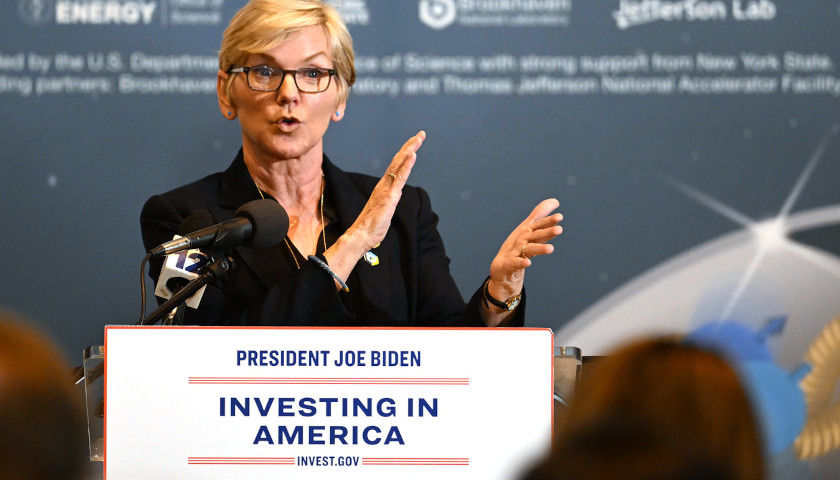by Will Kessler
A legal challenge could upend a long-standing Wisconsin law that has successfully balanced the budget at the expense of curbing public unions in the state, experts told the Daily Caller News Foundation.
Lawmakers passed the Wisconsin Budget Repair Bill, also known as Act 10, in 2011 in an effort to reduce the state’s budget deficit primarily by limiting the power of public unions to demand higher compensation and benefits that had come to be a drag on the state’s finances. A coalition of unions had their chance to argue starting on Tuesday to a Wisconsin judge that the law was unconstitutional, despite previous legal objections and the law’s success at solving key budgetary issues that had previously plagued the state, emboldened by a new liberal majority on the court that threatens to repeal the law, according to experts who spoke to the DCNF.
“Wisconsin statute unconstitutionally discriminates against most public sector workers, denying their freedom to negotiate with employers on subjects beyond base wages and to be represented by a union without jumping through the hoops of burdensome annual recertification elections, the lawsuit asserts,” the Wisconsin Education Association Association (WEAC) said in a press release following the initial filing of the suit. “Union members are filing the lawsuit now because of the dire situation that exists in our workplaces. Low pay, staffing shortages and worsening working conditions are hurting our ability to deliver public services to the communities that count on us every day.”
 The public employees opposing this law claim that it is in violation of Article 1 of the state’s constitution which guarantees equal protection due to workers being classified as “public safety” employees, like police and firefighters, being immune from the restrictions in Act 10, according to the suit. The newest challenge is the first since the state’s supreme court gained a liberal majority, with the law facing several other challenges since being put in place more than a decade ago.
The public employees opposing this law claim that it is in violation of Article 1 of the state’s constitution which guarantees equal protection due to workers being classified as “public safety” employees, like police and firefighters, being immune from the restrictions in Act 10, according to the suit. The newest challenge is the first since the state’s supreme court gained a liberal majority, with the law facing several other challenges since being put in place more than a decade ago.
“I would say it’s not a very strong claim. The federal courts have already ruled on this claim,” Lucas Vebber, deputy counsel at the Wisconsin Institute for Law and Liberty (WILL), told the DCNF. “They challenged the federal constitution’s equal protection guarantee, and they lost making similar arguments — not these exact points, just to be clear, but other plaintiffs have challenged it in federal court.”
Vebber believes that the case could take months to years to resolve due to various motions and processes that can drag the process out.
“By all accounts, Act 10 has been a success,” David Osborne, senior fellow at the Commonwealth Foundation, told the DCNF. “My colleagues at the Commonwealth Foundation found that Act 10 resolved Wisconsin’s $3.6 billion deficit without raising taxes and instead enabled historic tax cuts and credits for families and businesses. Then-Governor Scott Walker implemented the lowest state property taxes since World War II and enabled $8.5 billion in tax relief while in office. School choice soared, and costs are going down.”
The year before Act 10 was passed, the state had a $127 million budget shortfall that would add to the $3.6 billion structural deficit in the next year, with lawmakers pointing to the bloated salaries of unionized public employees, according to the MacIver Institute. By reducing how much taxpayers contributed to government employees’ pensions and insurance premiums and capping unions’ abilities to bargain wages greater than the pace of inflation, Wisconsin was able to create a surplus and save a total of $16.8 billion from 2012 to 2023.
The law also placed further restrictions on unions, requiring workers to vote to recertify the organization annually and banned government agencies from automatically collecting dues and PAC contributions from public workers’ paychecks.
“Act 10 was also a success for public employees, who now have greater choice in which union officials represent them or whether to be a union member at all,” Osbourne told the DCNF. “After Act 10, many employees chose not to be represented by the same union officials who had previously represented them. And the union officials who’ve remained have done so with relatively high levels of support from employees. In both instances, Act 10 has plainly made union officials more responsive and more representative of rank-and-file employees.”
Following the reforms in Act 10, the share of Wisconsin workers who were members of a union declined from 12.3% in 2013 to 7.4% in 2023, equating to around 112,000 fewer union workers, according to the Bureau of Labor Statistics. In contrast, the percentage of union workers in the United States has only declined from 11.3% to 10.0% in that same time frame.
Justice Alito is fed up! pic.twitter.com/88a3taLLc3
— Daily Caller (@DailyCaller) May 29, 2024
“There’s only one thing that changed, and it is the thing that motivated them to bring the lawsuit, and that’s the results of the Supreme Court election from April of last year,” Daniel Kelly, former Wisconsin Supreme Court justice and current NCLA Senior Litigation Counsel, told the DCNF. “So when Janet Protasiewicz was elected, it shifted the balance of the court from being one that is concentrated on the text of the law toward being a group of jurors that are more politically oriented.”
Janet Protasiewicz won the race for the open seat on the Wisconsin Supreme Court in April 2023, beating out Kelly and giving liberals control of the court for the first time in 15 years, according to NPR.
“So now the left has worked hard to flip the court and feels emboldened to overturn every good policy that has saved Wisconsin from the failed Gov. Doyle years that put us heavily in debt,” Anette Olson, CEO of the MacIver Institute, told the DCNF. “Act 10 has saved Wisconsinites $31 billion over the years. The bold reform in Gov. Scott Walker’s first term of office saved Wisconsin taxpayers and helped open Wisconsin up for business.”
Large pension obligations that Wisconsin was able to cut with Act 10 have wreaked havoc on the budgets of other states, particularly Illinois, which is projecting a $73 billion deficit for fiscal year 2024.
“In a broader sense, it’ll quickly have an impact outside the state, in the sense that there are really two competing schools of jurisprudence in our courts today,” Kelly told the DCNF. “So to the extent that the court follows that, if they overturn Madison Teachers, Inc. v. Walker — which is the prior case on this issue — it’s a signal to other courts that political activism on the courts is resurgent and kind of gives them aid and comfort in doing the same thing.”
The suit could also backfire on the unions due to the judge having discretion to strike down parts of the law to bring it into compliance with the Constitution. Vebber points out that the judge could decide to remove the distinction between general public unions and those exempt, putting the provisions on all government workers instead of repealing the act.
“One thing we found in our research was that even accounting for inflation, school districts are spending less on health care today than they were prior to Act 10,” Will Flanders, director of research at WILL, told the DCNF. “The implications of a full repeal are staggering, and I think it would send shockwaves not only across the state but also across the country.”
WEAC, SEIU Wisconsin and the Wisconsin Employment Relations Commission did not respond to a request to comment from the DCNF.
– – –
Will Kessler is a reporter at Daily Caller News Foundation.
Photo “Wisconsin Budget Repair Bill” by Mark Danielson. CC BY-NC 2.0.








